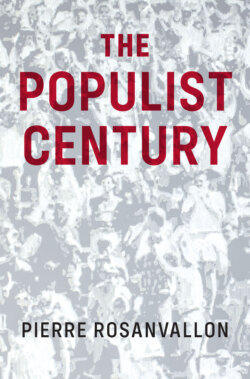Читать книгу The Populist Century - Pierre Rosanvallon - Страница 27
4 A POLITICS AND A PHILOSOPHY OF ECONOMICS: NATIONAL PROTECTIONISM
ОглавлениеThe history of modern economies is embedded in the long-term evolution and expansion of exchanges at both the intranational and international levels. The increasing specialization of productive activities and the development of economies of scale have thus tended to deterritorialize economies and to create a world market. But the benefits anticipated from this movement toward free exchange have been subject to constant interrogation. In the early nineteenth century, the optimism of an Adam Smith or a David Ricardo was already being denounced on the grounds that the underlying vision of the wealth of nations was an abstraction. In France, Germany, and the United States, the calls for adopting systematic protectionism were thus heeded by governments for social and political reasons as well as economic ones. “Where industry is concerned, we are conservatives, protectors,” according to François Guizot, the leading figure in French political liberalism of the period.1 He was concerned that free exchange would lead, as he put it, to “introducing a disturbance into the established order,” and for that reason he and his friends defended “national work” against “cosmopolitan competition.” In Germany, in 1841, the economist Friedrich List published Das nationale System der politischen Oekonomie, which was to prove profoundly influential for the future of his native land. List proposed the creation of a customs association (Zollverein) to encourage the political unification of the country through the establishment of a protected economic zone. His aim was in no way doctrinal: for him, protectionism was a circumstantial instrument for the “industrial education of the country.”2 The same thing held true in late nineteenth-century America, which limited foreign imports in order to ensure the rise of its own manufacturing industry.
For two centuries now, protective measures and preoccupations of this nature have been the basis for a sort of alternation between waves of protectionism and free exchange on the level of nations. They are still the focus of debates, as attested by the controversies in 2019 over trade agreements between Europe with Canada and with the Southern Common Market (Mercosur), as well as by recurring questions about what policies to adopt in the face of the trade imbalance with China. But in all these cases, today as in the past, the question of the appropriate degree of protectionism has most often been approached from a pragmatic standpoint; the only variations lie in the felt urgency of the question or in the nature of the problems to be taken into account (the issue of the environmental cost of global free exchange, for example, has taken on unprecedented importance). The defense of protectionism that lies at the heart of the economic vision of numerous populist movements is of a different order, and it is much broader in scope. It refers both to a conception of sovereignty and to a conception of political will, to a philosophy of equality and to a vision of security.
